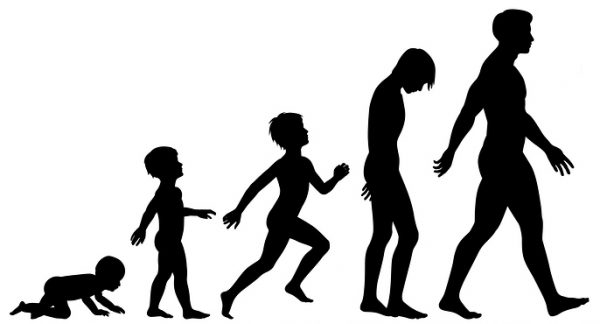
In Soviet Russia, there was a well-known joke about two dead, former presidents. It was said that when President Brezhnev died, he went to Hell. In recognition of his status, the Devil himself gave the President a guided tour of Hell and offered him the chance to choose his own room. After a while, the Devil opened one door, and inside Brezhnev saw his predecessor, Nikita Khrushchev, locked in a passionate embrace with Marilyn Monroe. ‘Great!’ says Brezhnev. ‘This’ll do me fine.’ ‘Ah,’ replies the Devil, ‘I think you’ve made a mistake, there. This isn’t Khrushchev’s Heaven – it’s Marilyn Monroe’s Hell. But if you want to swap places with her …’ It’s extremely disconcerting to be flung so abruptly out of our own perspective and to have its limits revealed to us. According to adult development theory, there are two ways of thinking about perspectives – and also acting upon them – that move us in the direction of growth. The first is learning to handle multiple perspectives. The typical adult development journey proceeds from the teenager who can only hold their own perspective – often in a state of righteous indignation and perplexity that anyone could possibly disagree with them; to the person who can understand other people’s perspectives – but tends to get overwhelmed by them and then take them on as their own (like the colleague who is always most swayed by the last person they spoke to); to the person who can take on board other people’s perspectives, but who also has a strong enough personal centre to make judgments about these perspectives and decide firmly on their own (the danger here is of over-confidence and dogmatism); to the person who is aware that their own perspective is only a view, it’s not the view, and who actively seeks out other perspectives in order to refine and improve the breadth and effectiveness of their own (which can be misinterpreted as wishy-washy-ness by colleagues who don’t yet have this capacity). The research of Robert Kegan and his colleagues at Harvard University suggests that there are two significant lessons we need to pay attention to here. The first is that people who are further through this developmental journey regularly exercise more effective leadership than their less well-travelled peers. It’s not that the later stages are somehow ‘better’ – or that we’re ‘better’ people for reaching them. That’s not the case. What’s at stake is whether we have the capacity to deal with the challenges we’re facing. And the later stages do more fully serve the requirements of leading in complex situations. The second lesson is that very few people do fully develop their capacity to work effectively with multiple perspectives. Most of us get stuck somewhere along the journey. And there are vanishingly few people who fully live in the final stage. I think I’ve met just one. If that seems surprising, it’s worth noting that there’s a very strong tendency for us to over-estimate how far along this developmental pathway we are. When we are stuck, Immunity to Change coaching (ITC) can be particularly powerful and effective. Whatever issue our clients work on in their Cru ITC coaching arc, one of their coach’s concerns will be to consider how they can leverage their client’s specific coaching work for the overall benefit of the client’s adult development. Developing the ability to work with different perspectives is very often a significant component of a coaching arc. The second move in the direction of growth is learning to hold our own perspectives more lightly. President Brezhnev got overexcited by seeing Marilyn Monroe because he mistook his singular perspective for the total truth of the situation. It’s a trap we all fall into – with quite extraordinary regularity. One practice that we’ve found very helpful, at Cru, is to learn to question our assumptions regularly and rigorously. This looks like an almost embarrassingly simple strategy – and in one way it is. But there’s a real challenge in remembering to use it every time it’s called for. The strategy is to ask ourselves two simple, powerful questions, which help reveal the limits of the perspective we are taking: One of the great benefits of this exercise is that not only does it directly help support us in learning to hold our own limited perspectives more lightly, and more questioningly, but this learning itself also helps us make progress on the overall adult development journey of being able to deal with increasing complexity. Cru Leader Development exists to equip people for the challenges of leadership.The President & the Movie Star
About Adult Development Theory
Robert Kegan’s Research
In my mid-30s, I got sick. I spent 18 months in bed, in pain and exhausted. It took three years before I got an accurate diagnosis: I live with an obscure genetic liver condition. Once diagnosed, I’ve been able to make the right adaptations, take action, and resume my life.
If there’s one clear message about leadership in the late 2010s, it’s that the pace of change is accelerating. Complex challenges are becoming more relentless. Leaders are becoming far more frequently overwhelmed.
One of my favourite quotes seems all the more relevant today: “It’s not the strongest of species that survive, nor the most intelligent that survives. It is the most adaptable to change.” Charles Darwin
